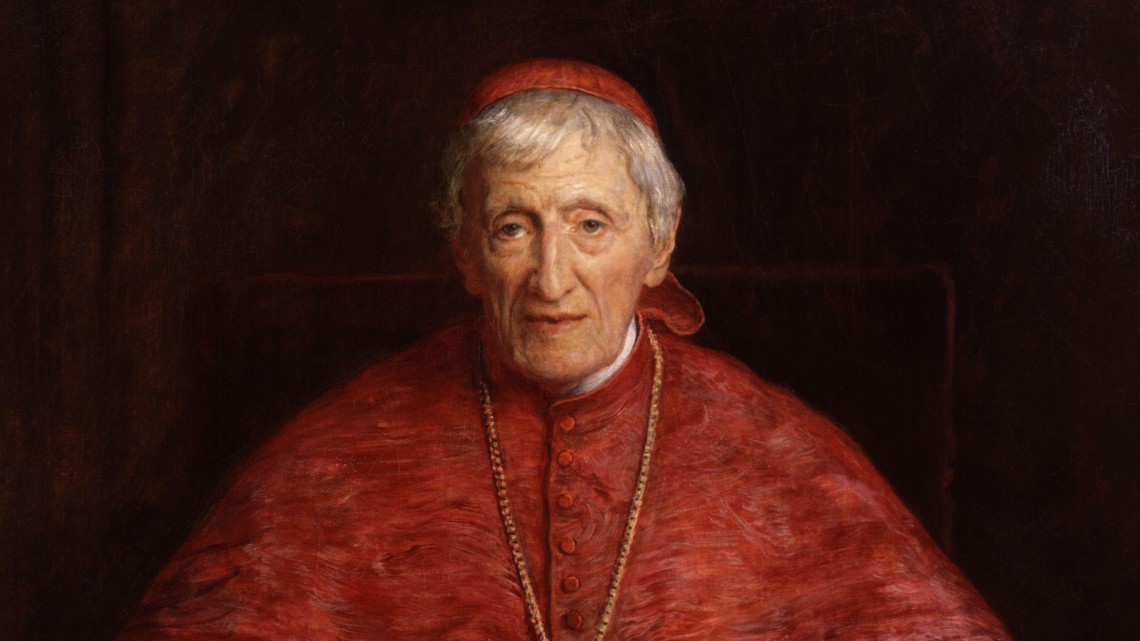Think about the different stages of your life. Reflect on all that you have learned as you moved through the various transitions that take place; whether it be school, a new job, a family, whatever it might be. We all recognize that along the way we have seen a lot and have grown as we have accumulated new experiences and insights into this wonderful human experiment.
And yet, we should also recognize that in mysterious way we are the same person that was first held by our mother. While we grow, our identity is relatively stable, and sometimes our personality as well. I am not sure how accurate this is, but I have heard from parents that within a relatively short time they are able to see the personality of their child emerge.
Thus, the human person is a mixture of change and permanence, of growth and stability. Blessed John Henry Newman makes the same point about Catholic doctrine.
Blessed Newman was a convert from the Church of England, and it was his study of the development of Christian thought that led in part to his conversion. When he looked at history, he saw a golden thread of truth, goodness, and beauty which was maintained in the lived experience of the Catholic Church.
He was able to see in Catholicism both the fundamental identity of the Christian faith and its natural growth and development.
Such an insight has a powerful ability to shape both our perception of the Catholic magisterium and our individual spirituality. In terms of the Church’s teaching authority, we must recognize that while growth and development may be uncomfortable, the communion of Bishops united under the headship of the Pope acts as a safeguard to preserving that consensus that transcends any one culture or one trend.
We should also recognize that continuity is the key to understanding authentic teaching. There is no rupture in the truth as it flowed from Judaism to the Early Church and from the early Church to our present time. Rather, that fundamental identity and continuity informs us of the authenticity of the message.
This in turn becomes the foundation of our discernment. The rule of faith is the measure by which we learn to see our individual inspirations and place within the Body of Christ. If an inspiration or work goes against the shared consensus of the Church which extends throughout history, we must reject it with trust that even when our perception seems to indicate otherwise, the way of communion is always better than our individual perspective.
Today, let us grow with our Church. Let us allow ourselves to be drawn into the revelation of God in time which is the grandeur of the Catholic Church.














[…] A Consensus That Extends Through History – Fr van Heusen, Christian Meditation The Illusion of Happiness – Maggie, Reverb Culture The Transcendental Revelations Of Astronauts – Jessica Hullinger, The Week Next Time, Stay Home With Your Stomach Bug – Jami Amerine, Scary Mommy How Theology of the Body Impacted My Life – Melanie Jean Juneau, Catholic Stand Merciful Like the Father: Sts. Timothy and Maura – Meg Hunter-Kilmer, Held By His Pierced Hands God’s Peace vs. the World’s Peace – Fr Cory Sticha, Laudet Dominum Pulp Catholicism #170 – B-Movie Catechism The Legendary Sir Ian McKellen and the Heuristic Shakespeare Project – Joseph Susanka 31 Days With Our Lady: Love From One Mother to Another – Mary Lenaburg, Passionate Perseverance […]